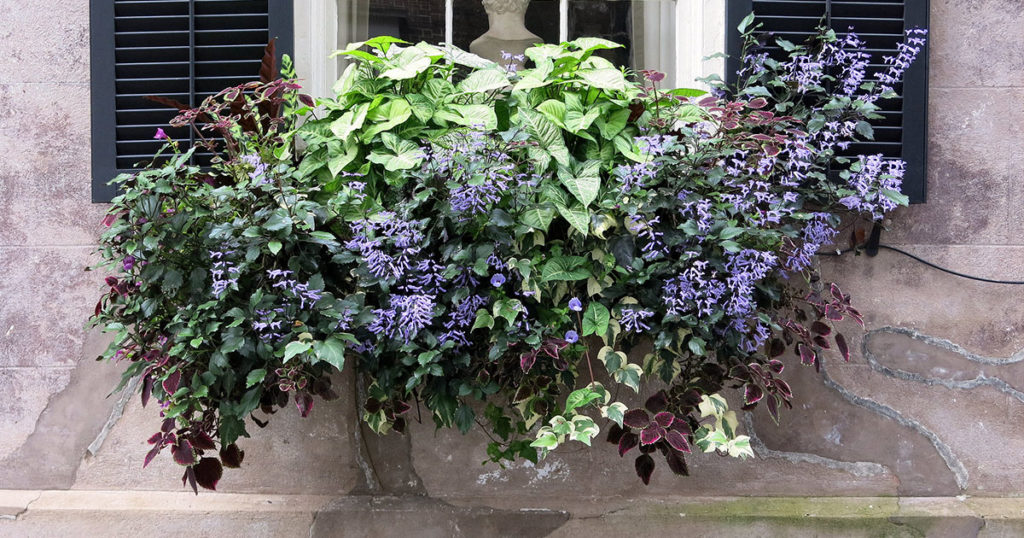
In “The Mark on the Wall,” Virginia Woolf’s narrator says of the people who’d lived in her house before her that they left because they wanted to change the style of furniture they lived with, and they believed a different style required a different setting. I too am moving house, as the Brits put it, and though a different style of furnishing is not my reason for moving, it is my hope in moving: a new architecture and the new furnishings to suit the new home, and slowly a different me emerging as I alter my colors to suit the new environment.
The first change I hope to see is an end to my absurd dedication to maintaining garden and grounds, whose only purpose is to be maintained, like an old pet kept alive whose only function is to live. You look after it not because you love it or someone else does or because its existence affords it pleasure, but simply because one has always done it and must therefore continue to. My garden is my burdensome pet, and I’m ready to leave it. It has always pleased me after a grooming, looking peaceful and pampered, and it has never misbehaved and gone off to roll in the muck as my real pets have. But do I love it? Can it be love if you feel more for your pet when the animal is freshly bathed than when it’s stinking from rolling in manure? I compete in no rose shows and host no garden parties, so what’s the sense of all this unnatural arranging and prettying? I don’t see it, and my upcoming move to a house without grounds is a chance to put all that behind me.
Without the garden I won’t have what’s just beyond it: wilderness, with dense pockets of brush where animals scurry and dig, nor trees with thick foliage where birds flutter. I will have no chance to save mice, birds, or lizards, moles or voles, that need rescuing, or bury the ones I’m too late to help. I won’t have the satisfaction I get from my compost heap of wasting no scrap of organic material. I won’t have my hours in the sun and wind or my particular interest in rainfall. I won’t wait for the return of the swallows to my barn every year or listen for the buzz of the bees among the profuse white blossoms of the wild plum. It’s easy to reassure oneself that something will replace the forfeited pleasures and activities, but I don’t know what. Woolf likens life to being blown through the London Tube to land shorn of every stitch of clothing and every bit of belonging at the feet of God. It is a mystery of ridiculous accumulated loss. How I agree.
Yet in my move I don’t feel loss so much as opportunity. The pirates are boarding the ship and I must flee. Snatching up the most cherished belongings and with a head full of memories, into the water I will go, to swim for it. There’s no danger. A dozen manned life rafts float nearby should I need help, and the shore is conveniently close. Of course I’ll make landfall. It will be an adventure. Woolf’s narrator sits in an armchair studying a mark on the wall across the room and reflects on the absurdity of life, “the perpetual waste and repair; all so casual, all so haphazard.” True. Looking back as I crawl ashore, I would see my route as utterly determined by chance. But in the water, swimming for it, I’ll see just the one course I take, one stroke at a time, to a sandy beach that has the surprising charm of not being mine. Already I will feel refreshed, almost new.
“How shocking,” writes Woolf, “and yet how wonderful it was to discover that these real things, Sunday luncheons, Sunday walks, country houses, and tablecloths were not entirely real, were indeed half phantoms, and the damnation which visited the disbeliever in them was only a sense of illegitimate freedom. What now takes the place of those things I wonder, those real standard things?” What, I ask myself, echoing Woolf’s narrator, will replace the lawn and the flowers and the love of quiet and solitude of the me I’ve thought I had to be because it was the real one? Frightening thought: that it was the real me not because there’s a real me encapsulated there but because any me is the real one. How shocking to realize that I could be something foreign to myself. That is the illegitimate sense of freedom.
How different will I be in my new surroundings? Not as different as I would like, I’ll bet. I am this year the age Woolf was at her death, but I will never walk into a river with stones in my pocket. How could I? I cannot see beyond the present path, dictated by—no, encompassed in—the habits I’ve always had: the plants must be kept pretty, the roof must be repaired, and the gutters cleaned, the children indulged, the pets kept alive, and the owner too. Woolf, in killing herself, was freer than I’ll ever be: I cannot conceive of abandoning all my mindless and habitual actions. A sliver of moon is visible through my window today, at dawn. It is like an heirloom to take along to the new home, a thing that is usually somewhere about though not in hand, popping up from time to time, one of a kind and yet easily forgotten, though comforting when it appears again. There’ll be no yard to mow, but I will put out the bedraggled potted plants I salvaged from the other life, and little by little, my new life will come to resemble my old one as I resettle in a different corner of the same realm.

